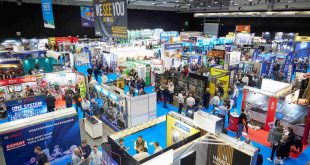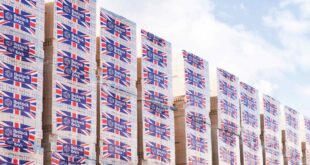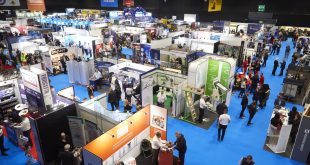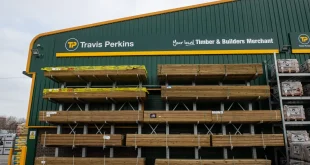When Team Sky set up, one of its aims was to provide a British winner of the Tour de France within five years. It managed two in four years – Bradley Wiggins and Chris Frome.
Robert Tansey, development director at Sky Sports and chairman of Team Sky, also wanted to get an extra 1m people in Britain cycling regularly.
“We formed our partnership with British Cycling in 2008 and it’s hugely exciting for us that the Tour De France – the toughest cycle race in the world – is going to run through part of the UK for the 2nd time,” he told delegates.
Tansey said that one of the things that stands out for him about the partnership is their shared values. “The Sky strap line is ‘believe in better’ and that underpins everything we do. Sir Dave Brailsford calls it ‘believe in aggregated marginal gains’. Basically, both teams believed the same thing and had the same goals.
“We set about building what our vision for the future was. One of the founding things we wanted to do was to set the vision for the long term and build one of the world’s most admired sports teams.”
That phrasing is deliberate, he explained. “Admired rather than successful. We wanted it to be about being champions as well as winning.”
The aim for getting the first British Tour de France winner was all about inspiration, he said. “You can’t just tell 1m extra people to go and get onto their bike. You have to inspire them to do it.”
In 2009 Sir Bradley Wiggins came 4th and was 6minutes behind the winner but in 2010 he came 24th and was 29 minutes behind. “We screwed up,2 he said. “We had to ask ourselves why with all this raw talent has the performance dropped? Dave Brailsford admitted what they got wrong and said: ‘here’s what we’re going to do to put it right.'”
The trouble, was, Tansey explained, that up until that point, the teams had been using their very great experience and knowledge of track cycling, but road cycling is very different.
The toughest road race in the world, the Tour de France involves 21 days racing over 3497km. It’s the equivalent of climbing 20 Mount Everests and there’s the added complication of the fact that there are 20 other teams all trying to do the same thing.
“If you want to win,” Tansy said. “It’s key to ask yourself what are the three or four things which, if you change them, will put you in the winning position?
The things that the team had to work out included the watts per kilo of body weight. How much power could each cyclist produce and could they maintain that for three weeks? Could they climb well and climb at altitude as well, and could they do all of that in extreme heat?
“When you are faced with complex problems, it’s easy to lose sight of the fundamentals. After Year 1, every rider’s training was based on those four key things. After that, we could start focusing on the incremental improvements.”
Tansey talked about the team and how the team works to support the team leader. “The team is nine riders but only one winner. We even have one member of the team whose job it is to ride in front of the leader to protect them from the wind as that’s what costs a rider the most in terms of energy. A key challenge therefore is motivating people to support the team leader when they have no chance of glory themselves. You do it by giving them their clear job objectives and then recognition for doing it. That way you get much happier more motivated people who do what they need to do.”
The Team Sky team is about more than just the riders, Tansey said. “It’s about Mario – the carer who sorts the hotel check-in process for exhausted riders by memorising all their room numbers, allowing them to get to their rooms with the minimal amount of fuss. Little things that make a big difference to the riders.
“It’s about the mechanics who have to maintain the bikes. We try and get them to work towards being the best mechanic of all the teams. Each mechanic has to think about the core things they do to make it work. They have their own personal yellow jerseys, if you like, which they work towards.
“Another vital role is the team chef. The riders have to eat lots of chicken, pasta, tuna and rice. That can be a bit boring after a while, so his job is to make it as interesting and as tasty as possible so that the riders get the vital fuel they need into their bodies.”
Although the Tour de France is all about the one winner, sometimes the team decision can be about another member of the team, Tansey said. “Mark Cavendish was on track to win more individual stages than anyone else in the Tour de France. But in 2012 he had to push his ambitions aside in order to support Bradley. At the final stage, the Champs Elysees sprint, whoever is wearing the yellow jersey just has to cross the line. They don’t have to be in front. Most winners, however, like to win that stage as it’s the poster-boy moment. But that year Bradley Wiggins decided that the team would win that stage and that Cavendish would be the one to win it. He reasoned that the team had done so much to support him in becoming the first British winner of the Tour that it was time to show some support back to the team. It doesn’t always have to be about the winner.”
 Builders Merchants Journal – BMJ Publishing to Builders Merchants and the UK merchanting industry for more than 95 years
Builders Merchants Journal – BMJ Publishing to Builders Merchants and the UK merchanting industry for more than 95 years



